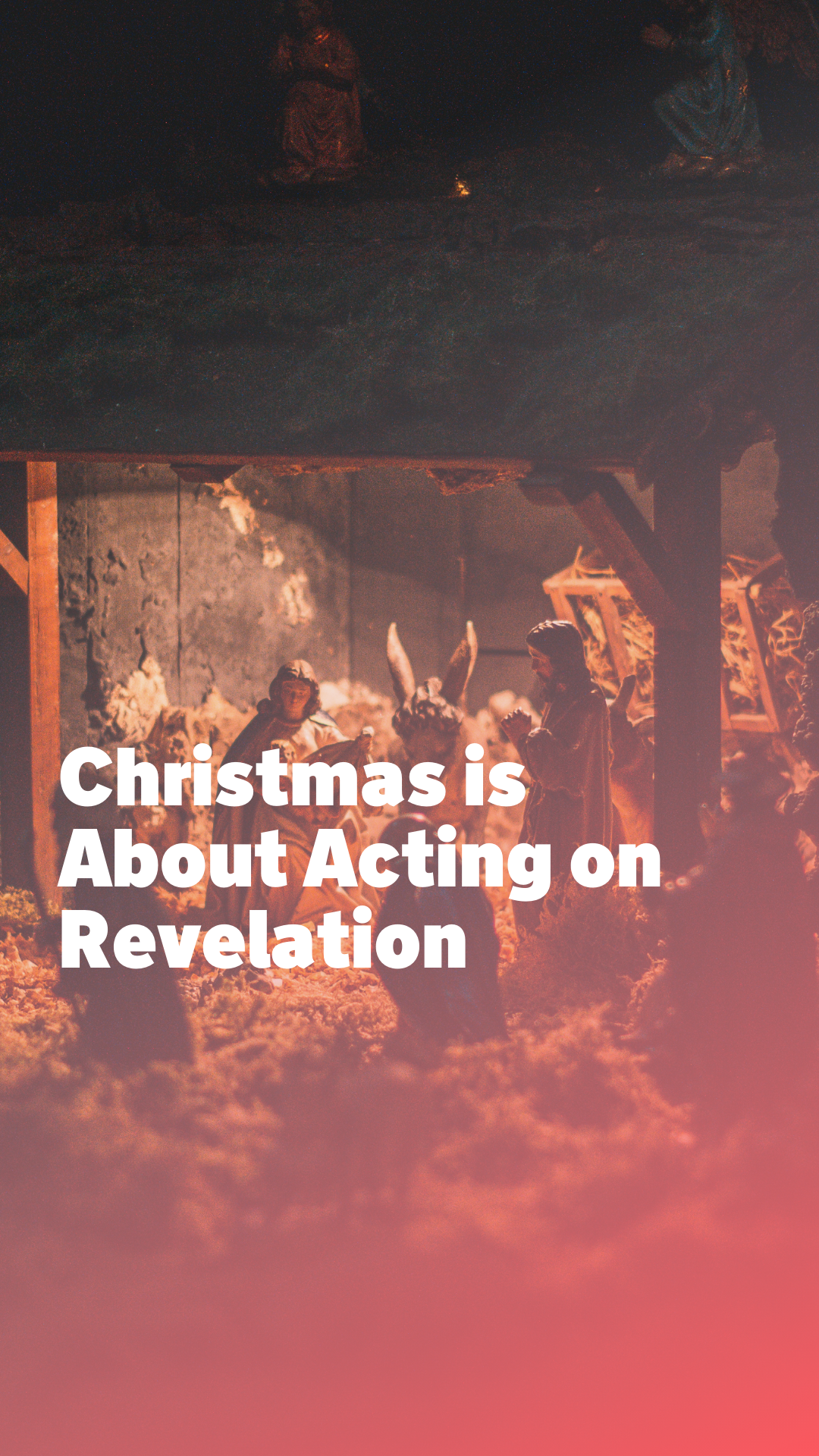Part 4 in series “What I’ve Learned as a Leader” by Steve Long, Catch The Fire Toronto Ambassador
The Importance of Having a Vision
I mentioned in my last blog that I'm intentional. I know the plan, I live the plan, and I execute the plan. I don't easily get sidetracked. That is because I highly value vision. The Bible has many stand-alone principles, and here is one that is full of wisdom:
"Where there is no revelation, people cast off restraint, but blessed is the one who heeds wisdom's instruction" (Proverbs 29:18)
Another way of saying it is people who don't know where they are going end up going nowhere. They waste their lives doing meaningless things. The concept is simple. No plan, no purpose, no vision? Then nothing good happens. This is true for individuals, companies, and congregations.
Jesus saw this in the nation of Israel. In Matthew 9:35-38 he discerned the people were in three categories. Helpless (they don't have resources), harassed (they don't know what they are up against), and aimless (like sheep wandering). Jesus’ solution was Shepherds – Helpers to reveal the kingdom of God. The new kingdom rules for living would give people hope! Spiritual people should know how to help others. We know that the demonic is real and Satan is an adversary. We know how to change from aimlessness to seeking direction from the Lord.
Aligning with God’s Vision
In my first blog in this leadership series, I tell the story of how I joined Catch the Fire, and how in my journaling Jesus redirected me from a possible church in Kingston, ON, to serve John and Carol Arnott. That was God's vision for me. The kicker was I was not just to serve John and Carol but to serve their vision. So that's what has been my focus for the last thirty years. Sandra and I have stayed true to the task Father God gave us. When I joined Catch the Fire in 1993 as a consultant for the conferences, the church's vision was: "To walk in God's love and give it away." Easy. That's the great command from Matthew 22:34-40 Love God, and love others as you love yourself.
Because God chose our church to be the epicentre of the Toronto Blessing, with twelve years of nightly revival meetings, we needed to add to our vision. We weren't just a small church by the airport anymore; we started to have a global impact.
Our vision statement was adapted: "To walk in God's love and give it away to Toronto and the World." It was the same vision, but it evolved to help us as a church to remember we were still rooted in Toronto, but we also had a more significant international mandate. That vision led us to start a School of Ministry to raise leaders for our city and the world. That vision led us to start 15 churches in the GTA and ten others in Canada. That vision led us to release leaders from Toronto to start Catch the Fire churches worldwide.
The vision statement about God's love means everything we do is based on our understanding of God as a Father. He loves us unconditionally and extravagantly. This love will transform people's lives. We value presence and loving others and transformed lives for everyone
Our vision statement is very similar today, but now it is said differently: "Encounter God's transforming presence." (If you are new to Catch the Fire, click here to see our fuller vision statements.)
To help others encounter God, we first need to love ourselves. That means we value inner healing and deliverance. Our leadership team repeatedly receives spiritual counselling, trauma ministry, and emotional healing. Why? It's part of our vision. I myself have had six whole weeks of inner healing with Restoring the Foundations. I'm currently having trauma ministry to release things my body is holding on to. Sandra and I have had marriage ministry several times, even when I didn't think we needed it. Apparently, Sandra felt one of us did.
Vision comes from God. A unique personal calling Father God gives to each of us. He calls us, into business or politics, to be kingdom people. He calls us into education to bring salt and light. He calls us to be married and raise Godly kids. Whatever our calling, it's all vision.
Vision is the reason why we encourage everyone to know how to hear God's voice. Week one at our Leaders School. Week one at our five-month School of Ministry. Day one of our International Leaders Schools. Day one of our in-house leadership training. Hearing God's voice is a primary value, and we make it a priority in all of our schools. Why? Because now we are wired to hear Father God's vision. Vision will keep us from living aimlessly.
Jesus only did what he heard, saw in the Spirit, and knew in his heart. Jesus' vision for his life was God's vision for him. He had function and purpose. Seven times in John's gospel, he says,
"Truly, truly, I tell you, the Son can do nothing by Himself, unless He sees the Father doing it. For whatever the Father does, the Son also does.” (John 5:19)
Each of us will have a unique vision for our lives, for what we do, and for what we are to accomplish. Mine has been and still is to serve John and Carol Arnott. First, that was helping with the revival meetings and coordinating conferences. Then it was raising up connect leaders and pastoring our pastoral team. Then it was as Senior Leaders. Now it is to pastor about 50 of our Catch the Fire Partner churches in Europe, the UK, the Middle East, and Africa. My personal vision helps me to know what to say yes to and what to say no to. I have focus. I've become good at saying no, and redirecting people to others who can help them better than I can. I don't need to be the fix-it person for everyone, nor can I be if I stay true to my vision.
In Acts 4, a potential racial challenge came to the church. Greek widows felt Hebrew widows were getting preferential treatment, especially regarding food help. I love how the apostles handled the problem. They told the Greek women to nominate seven men to help them. The criteria were men full of the Spirit and faith. Once seven names were presented, the apostles laid hands on them, commissioning and anointing them for this new task of food distribution. The apostles didn't jump up and run to the kitchen. They didn't drive their cars around the city, dropping off food parcels. No, their vision determined their intention. They stayed focused on prayer and proclaiming the kingdom. I love it. They solved a problem and remained faithful to their calling.
I've already mentioned the passage where Jesus talks about the crowds of people who were helpless, harassed, and aimless. The solution wasn't for Jesus to keep doing meetings and doing all the ministry. The solution was for Jesus to choose twelve people he would train to help him in ministry and for them to lead the meetings eventually. Once this transition happened, we rarely see Jesus doing large events such as the Sermon on the Mount, or feeding the 5000. His vision to seek and save the lost was implemented by his raising up leaders.
Seventeen years ago, when John and Carol asked us to become the senior leaders, we were given six months' notice, and the church was given three months' notice. Very little time for our transition. John shared his two main concerns with me at that meeting about becoming the next Senior Leader. He said, "Steve, you have no business experience. That's a weakness." He also said, "You say yes to too many people."
My first thought on the business topic was to take an executive MBA. I approached three businessmen I knew and respected, intending to ask them to fund me. They all said the same thing. "Steve, don't you get an MBA, hire someone who has one." Bryan Stephenson, who happened to be a retired Major General, and chief strategist for the Canadian Armed Forces, was that someone. His hire was the best decision Sandra and I made. He helped us with team and vision implementation.
On the topic of being a "yes man," I signed up for ministry immediately. It turns out the core issue was abandonment, which caused me to want everyone to like me, which caused me to always say yes, even when I knew I should say no. I came back from that counselling changed. I was often met with looks of shock from my colleagues, who were used to a quick yes. I may not have been liked as much, but I became a better leader because my weakness was revealed and ministered into.
Vision has guided my life as a leader. I believe Catch the Fire is a better church because we've sought to hear from the Lord and stay true to what He says as a leadership team and congregation.
God will do that for each of us! Hear his voice and be led by His Spirit!
Steve Long is the former Senior Leader of Catch the Fire Toronto. He and his wife Sandra led the church for 16 years and have been on staff since 1994. They now function as Ambassadors on behalf of the church. He is the author of several books, including The Faith Zone and My Healing Belongs to Me. Steve and his wife Sandra serve on two apostolic teams; one for the City of Toronto and Catch The Fire World. They live in Oakville, Ontario, Canada.











